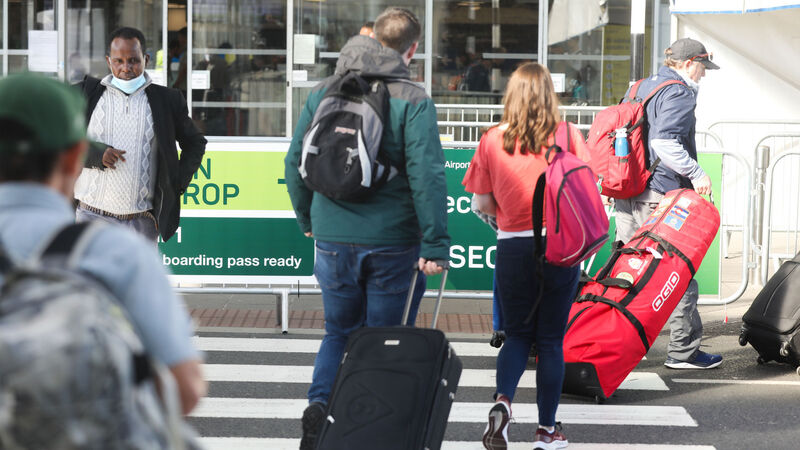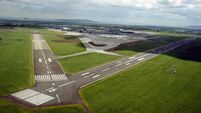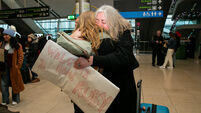Eoghan Corry: Sending in the army belongs in ‘Reeling In the Years’ – but it just might work

Passengers travelling through Dublin Airport. Picture: Leah Farrell/RollingNews.ie
Send in the army. Yesterday’s announcement to put the army on standby for duties at Dublin Airport has the appearance of panic, a minister arriving at the check-in desk, flustered and long after the aircraft has departed, having been delayed in the security queue of procrastination.
Why now? The queue crisis, we are told, is partly over. More than 30 extra trained personnel are arriving in the security team each week, making a repeat of the famous meltdowns at end-March and end-May more unlikely.
















